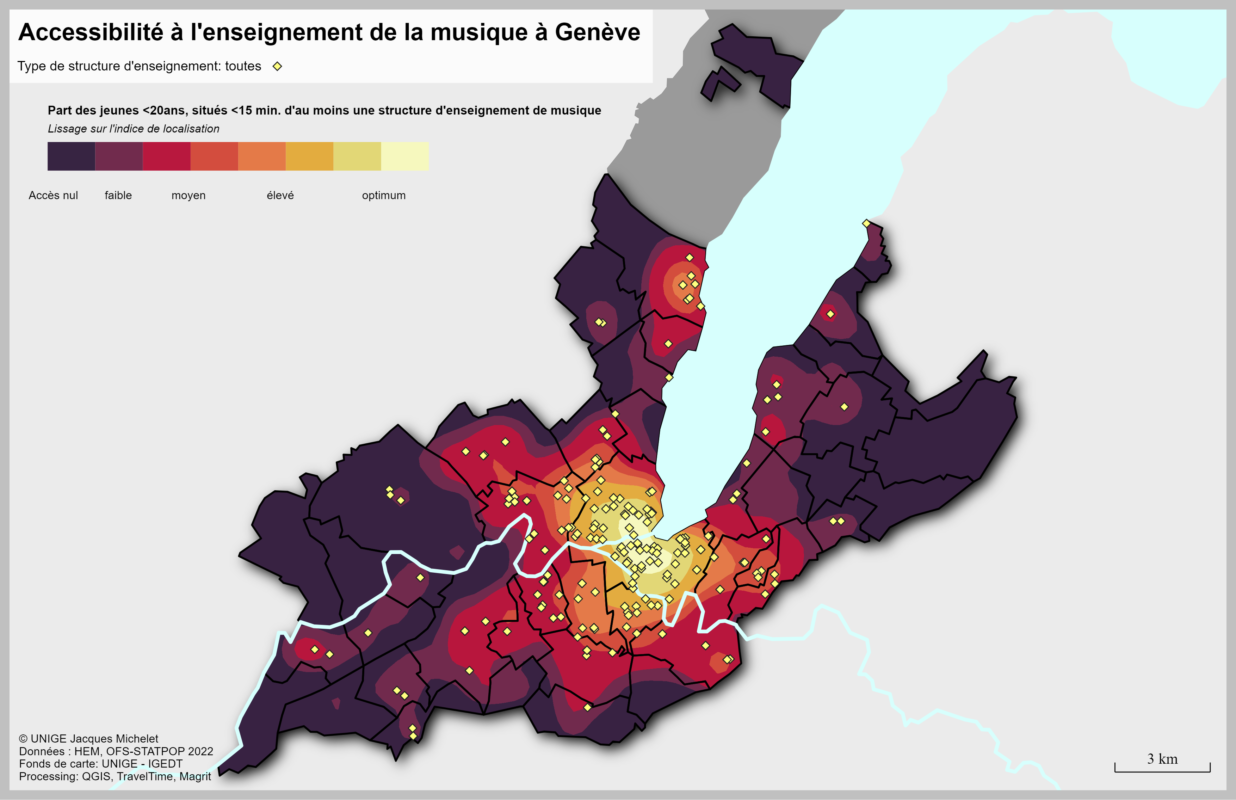Just imagine!
The climate crisis is also prompting music creators to take action. Although many of them find themselves in complex situations of dependence, they do have room for manoeuvre. What's more, their core competencies are being called upon to imagine new worlds.
As creators of music, our realities are very different: from the Future Beats producer in her home studio, to the jazz trio on tour, to the yodelling choir singer, we evolve in very different ecosystems. What unites many of us is the limited financial means with which we have to juggle. Especially after COVID. Caught between economic pressures and artistic demands, the urgency of our common mission can take a back seat. This is understandable, but fatal, because time is running out. If we don't significantly reduce global greenhouse gas emissions over the next eight years, and if we don't limit global warming to 1.5 degrees, the long-term consequences will be of the following order of magnitude: India, a country of over 1.3 billion inhabitants, will be largely uninhabitable in a few decades' time, because it will simply be too hot. As a music industry, we have a collective responsibility, like all other sectors, to break with our resource-hungry routines. We can do it!
The music industry is the one that produces the most emissions due to mobility. In the course of a single weekend, DJs are transported from London to Warsaw, then to Majorca and finally to Berlin for the afterhour, bands cross Europe in small or large buses, fans drive by the thousands to their concerts. If we want to act more sustainably as musicians, we need to rethink the way we travel.
A return flight from Zurich to London generates around 400 kg of CO2 per person. According to the organization My Climate, this is two-thirds of what a person can emit annually if we want to effectively (and jointly) stop global warming. Currently, the average person in Europe consumes around 8.4 tonnes of energy. By way of comparison, a person travelling to London by train - via Paris, in less than eight hours - emits 40 kg of CO2. Forgoing air travel is one of the most effective ways of protecting the climate. CO2 offsets offer no real solution - in fact, the opposite is true: they are controversial because they defer savings into the future. A German musician who wanted to offset his tour by buying a plot of forest and planting trees soon found that his trees had fallen victim to a parasite. To absorb the emissions, they would have had to grow for decades. So the general rule is: first avoid, then reduce and, only at the very end, compensate for the rest.
As (touring) musicians, we're often caught up in a complex web of socio-economic dependencies. We are all the more dependent on the fact that other players are also on the move. We can accelerate this process by making sustainability a theme. Again and again. In concrete terms: ask your venue manager whether oil or gas heating has already been replaced and whether electricity comes from renewable sources; create your own catering rider using the "Green Rider" model, with which you can encourage organizers to offer vegetarian and vegan meals or to dispense with plastic bottles. Talk to your booking agency about how your tour routing can be organized more efficiently, and discuss with your fellow musicians whether it's really worth traveling hundreds of kilometers or even getting on a plane for that one gig. Ask funding organizations to help you travel more sustainably (electric van hire, train tickets, extra accommodation). From several interviews, we know that foundations want artists to do more lobbying. Join Music Declares Emergency or another organization and then go public: whether through songs, concert announcements or social networks, share your concerns about global warming, formulate utopias.
This is where our real superpower comes into play: as artists, we specialize in expanding realities. Through our music, we are constantly creating new places, from shelters for uncomfortable feelings to utopian landscapes. In the context of the climate crisis, this imagination is very much in demand. There can never be enough musicians getting their heads in the clouds, asking questions and provoking change: what do alternative touring models look like? How can they be more ecologically sustainable, less stressful and more economically sensible?
What if, for example, each concert venue had its own backline? What if our luggage was picked up by cargo bikes in the rehearsal room, taken to the station and loaded by the rail operator's transport service, and we could also travel by train in complete relaxation? What if we played in six cities, instead of twenty, during a three-week tour, but stayed in one venue for four days each time, and gave four concerts in four venues? What if these residency tours were encouraged? If we had more time to get to know the local music scene and set up collaborations?
Formulating ideas, even if they're not fully developed, can be an important first step. It feeds the people who specialize in translating our ideas into political reality.
The climate crisis is also prompting music creators to take action. Although many of them find themselves in complex situations of dependence, they do have room for manoeuvre. What's more, their core competencies are being called upon to imagine new worlds.
As creators of music, our realities are very different: from the Future Beats producer in her home studio, to the jazz trio on tour, to the yodelling choir singer, we evolve in very different ecosystems. What unites many of us is the limited financial means with which we have to juggle. Especially after COVID. Caught between economic pressures and artistic demands, the urgency of our common mission can take a back seat. This is understandable, but fatal, because time is running out. If we don't significantly reduce global greenhouse gas emissions over the next eight years, and if we don't limit global warming to 1.5 degrees, the long-term consequences will be of the following order of magnitude: India, a country of over 1.3 billion inhabitants, will be largely uninhabitable in a few decades' time, because it will simply be too hot. As a music industry, we have a collective responsibility, like all other sectors, to break with our resource-hungry routines. We can do it!
The music industry is the one that produces the most emissions due to mobility. In the course of a single weekend, DJs are transported from London to Warsaw, then to Majorca and finally to Berlin for the afterhour, bands cross Europe in small or large buses, fans drive by the thousands to their concerts. If we want to act more sustainably as musicians, we need to rethink the way we travel.
A return flight from Zurich to London generates around 400 kg of CO2 per person. According to the organization My Climate, this is two-thirds of what a person can emit annually if we want to effectively (and jointly) stop global warming. Currently, the average person in Europe consumes around 8.4 tonnes of energy. By way of comparison, a person travelling to London by train - via Paris, in less than eight hours - emits 40 kg of CO2. Forgoing air travel is one of the most effective ways of protecting the climate. CO2 offsets offer no real solution - in fact, the opposite is true: they are controversial because they defer savings into the future. A German musician who wanted to offset his tour by buying a plot of forest and planting trees soon found that his trees had fallen victim to a parasite. To absorb the emissions, they would have had to grow for decades. So the general rule is: first avoid, then reduce and, only at the very end, compensate for the rest.
As (touring) musicians, we're often caught up in a complex web of socio-economic dependencies. We are all the more dependent on the fact that other players are also on the move. We can accelerate this process by making sustainability a theme. Again and again. In concrete terms: ask your venue manager whether oil or gas heating has already been replaced and whether electricity comes from renewable sources; create your own catering rider using the "Green Rider" model, with which you can encourage organizers to offer vegetarian and vegan meals or to dispense with plastic bottles. Talk to your booking agency about how your tour routing can be organized more efficiently, and discuss with your fellow musicians whether it's really worth traveling hundreds of kilometers or even getting on a plane for that one gig. Ask funding organizations to help you travel more sustainably (electric van hire, train tickets, extra accommodation). From several interviews, we know that foundations want artists to do more lobbying. Join Music Declares Emergency or another organization and then go public: whether through songs, concert announcements or social networks, share your concerns about global warming, formulate utopias.
This is where our real superpower comes into play: as artists, we specialize in expanding realities. Through our music, we are constantly creating new places, from shelters for uncomfortable feelings to utopian landscapes. In the context of the climate crisis, this imagination is very much in demand. There can never be enough musicians getting their heads in the clouds, asking questions and provoking change: what do alternative touring models look like? How can they be more ecologically sustainable, less stressful and more economically sensible?
What if, for example, each concert venue had its own backline? What if our luggage was picked up by cargo bikes in the rehearsal room, taken to the station and loaded by the rail operator's transport service, and we could also travel by train in complete relaxation? What if we played in six cities, instead of twenty, during a three-week tour, but stayed in one venue for four days each time, and gave four concerts in four venues? What if these residency tours were encouraged? If we had more time to get to know the local music scene and set up collaborations?
Formulating ideas, even if they're not fully developed, can be an important first step. It feeds the people who specialize in translating our ideas into political reality.









